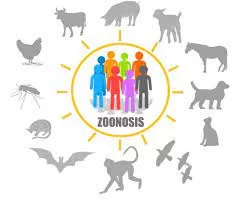
A study published in Preventative Veterinary Medicine has illustrated how alterations in farmers’ behavior can significantly impact the prevention of disease outbreaks. The conduct of farmers, particularly in terms of vaccination and other preventive measures, plays a pivotal role in the efficacy of responses to livestock diseases such as foot-and-mouth disease, bovine tuberculosis, and bovine viral diarrhea. Researchers from the Universities of Warwick and Nottingham emphasize that the behavioral disparities outlined in the study must be considered when formulating contingency plans and shaping policies for future outbreaks.
The research team conducted interviews with 60 cattle farmers across the UK, examining their vaccination decisions during a rapidly spreading epidemic. The findings revealed that prompt adoption of vaccinations was linked to a high level of trust in the government’s disease control plans, as well as having adequate time and resources to manage the disease. Subsequently, this information was integrated into a comprehensive mathematical model for the entire UK, enabling an assessment of how awareness of farmer behavior might influence predictions of disease outbreaks, in contrast to scenarios where variations in behavior were disregarded.
The researchers, affiliated with Warwick’s Zeeman Institute for Systems Biology and Infectious Disease Epidemiology Research (SBIDER) and the University of Nottingham, demonstrated the utility of a model encompassing both epidemiological and socio-behavioral components. The study underscores how neglecting the diversity in individual farmers’ strategies for managing livestock infections can impede projections of probable national outcomes.

The significance of this behavioral insight, as underscored by the research, could be invaluable in devising and implementing national strategies for disease control, offering policymakers a more precise understanding of the scale and cost of future livestock disease outbreaks. Dr. Ed Hill, a co-author from the Warwick Mathematics Institute at the University of Warwick, noted, “Our quantitative study delves into behaviors related to veterinary health, encompassing individual and contextual factors. These data enable the incorporation of differences in farmer disease-management behaviors into models of livestock disease transmission, aiding in veterinary health decision-making.”
Co-author Dr. Naomi Prosser from the University of Nottingham added, “Gaining insight into the specific factors influencing different behavioral responses of farmers to disease outbreaks will lead to better-designed disease control strategies, taking these factors and anticipated behavioral variations into consideration.” Dr. Hill further emphasized, “This initial study has demonstrated the potency and necessity of uniting epidemiological forecasts with an assessment of farmer behavior. Further research is now warranted to comprehend how farmers’ attitudes, perceptions, and beliefs, and thus their likely behavior, will evolve over time. We are also interested in comprehending how behaviors are influenced by policy, advice, and the actions of neighboring farmers.”










